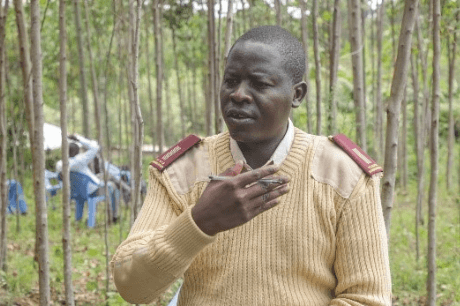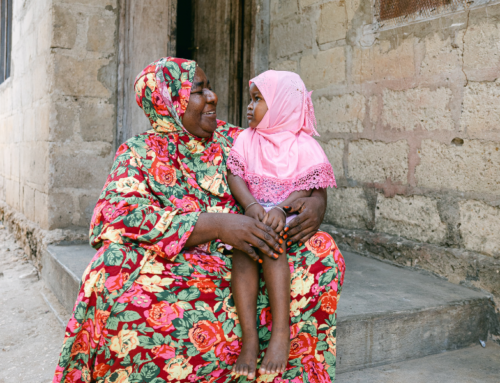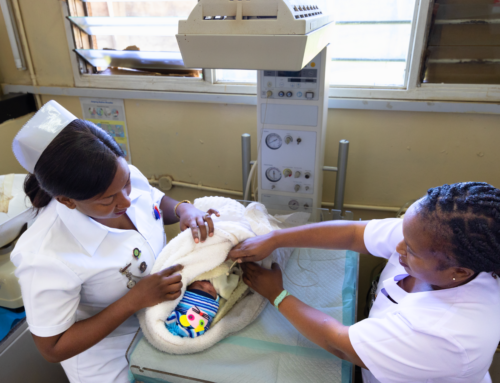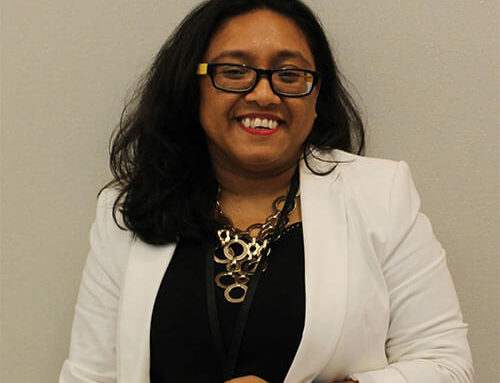
At 12 pm on a hot Tuesday, William Jadedo convenes a group of men at a homestead in Rapogi in Migori County, Kenya. Young and old men meet regularly to discuss and solve issues affecting their community. William is a senior assistant chief and a father of four – three sons and one daughter.
The men gather under freshly grown trees and beautiful blooming flowers, brainstorming about a matter brought before them. “We have met today because of a land dispute,” William says to the men in an authoritative but soft-spoken voice.
According to William, some community members, especially men, were not happy when a grandmother divided a piece of land among her granddaughters. This forced him to address the structural and cultural barriers women face in the community.
“The community has to understand that women have the right to inherit land and we have to educate them,” he says. “I want the girls and women in my community to know that their concerns are being heard and seriously addressed.”
He passionately chairs the session but before closing the meeting he turns to the topic of sexual and gender-based violence (SGBV) affecting the community. He is working tirelessly toward changing people’s attitudes about SGBV.
“If your wife denies you conjugal rights what should you do?” William asks a young man.
“I will ask her what brought her to my house,” the young man quickly responds.
The response leads William to address the issue of sexual violence among couples, giving reference to numerous reported cases of marital rape. “I came to know about intimate partner sexual violence through a training conducted by Amref,” he tells the men. With support from the Government of Canada through Global Affairs Canada, William was among 22 chiefs trained on how to enforce SGBV policies and guide survivors through the service referral process.
William notes that the perpetrators of sexual and gender-based violence range from intimate partners, caregivers, and family as well as community members. He works closely with community health workers and community health assistants. “We update each other on the cases and alert in case of any emergencies,” he says.
He believes that the solution lies within themselves. “The men should be aggressively involved in addressing SGBV as well as offering solutions,” he says.
Survivors of sexual and gender-based violence are referred to the local health facility. After the referral, William ensures that the survivors are well treated and their cases are taken up by the police. “Many times, I attend the court session and testify because I want every survivor to get justice,” he says.
Chiefs are well placed to identify and help women and girls who are at risk of SGBV in communities. Recently, a woman was physically assaulted by a male family member – inflicting serious leg injuries on her. It took the intervention of William and a community health worker who took the woman to the hospital for medical attention. They later assisted to ensure the survivor got justice.
According to William, major challenges affecting survivors from getting justice are withdrawal of cases, bribes and victim blaming, among others. The role of chiefs in fighting SGBV includes mobilization and creating public awareness of SGBV prevention and steps for seeking justice for survivors. The chiefs also receive complaints and handle them appropriately through referrals and support the police to locate the perpetrators and arraign them in court.
Fighting SGBV needs a multisectoral approach that involves all stakeholders. For the last two years, Amref Health Africa has worked to build the capacity of community leaders, facility health workers, police, the judiciary and community health workers to effectively deal with all forms of SGBV.
The health workers have been trained on how to collect and preserve forensic evidence, which is vital when seeking justice for survivors of SGBV. Community health workers (CHWs) have been trained to identify, report and follow up on suspected cases or survivors of SGBV at the community level. The CHWs work hand-in-hand with chiefs and nurses at the nearest health centres.
Amref believes that ending SGBV needs a concerted effort and continues to work with communities to support them to recognize and prevent violence against girls and women.




